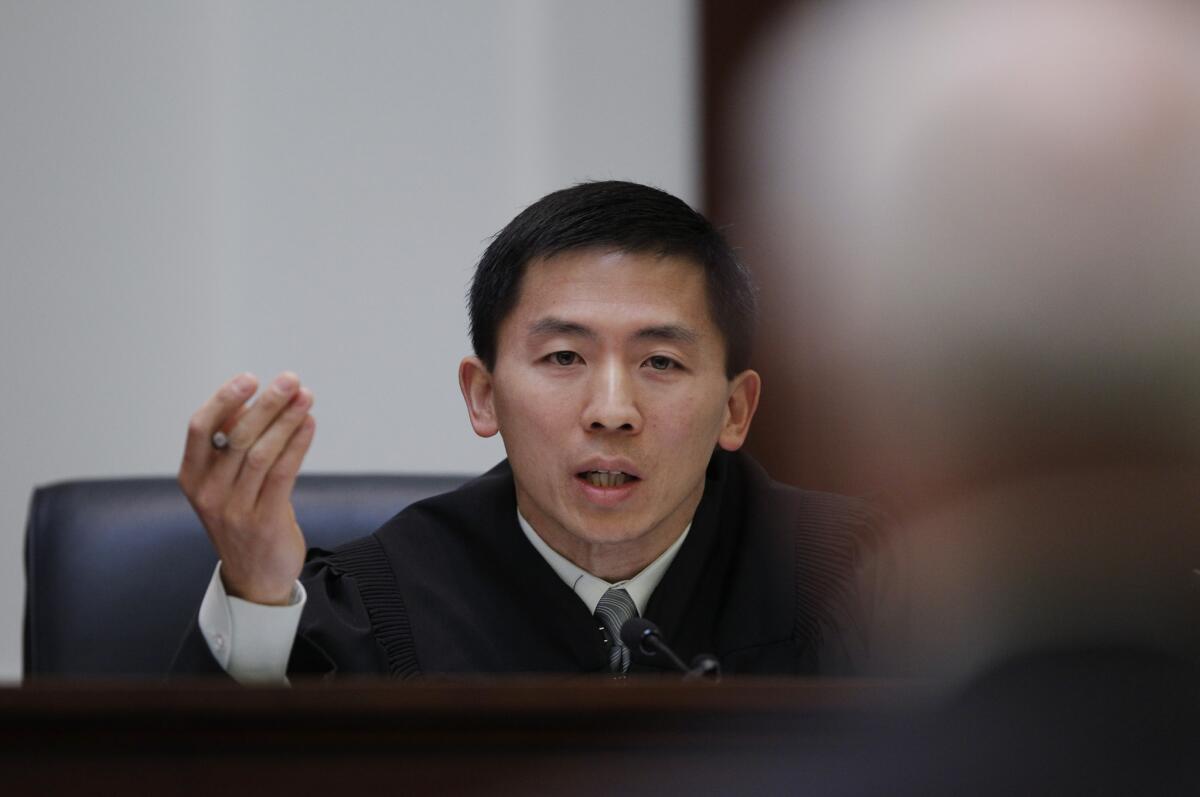State high court gives judges more leeway in sentencing juveniles

- Share via
Reporting from San Francisco — The California Supreme Court decided Monday that teenagers may be sentenced to life without parole for some crimes, but judges also are free to hand down lighter sentences of 25 years to life.
Prior to the unanimous ruling, California law had been interpreted as requiring judges to lean toward life without parole for 16-year-olds and 17-year-olds convicted of certain offenses. The decision overturned decades of lower-court rulings.
The court’s action gave two men who were 17 at the time they killed the opportunity to have their sentences reconsidered by trial judges.
The court said the sentences should be reviewed because they were handed down before the court clarified state law and before the U.S. Supreme Court ruled in 2012 that judges must consider a juvenile’s immaturity and capacity for change.
The ruling, written by Justice Goodwin Liu, stemmed from appeals in two separate cases.
In one, Andrew Lawrence Moffett robbed a store and his accomplice killed a police officer in Pittsburg, Calif.. Moffett was convicted of murder, robbery and driving a stolen vehicle.
Because the victim was a police officer and Moffett used a gun during the crime, he was subject to life without parole.
In the other case, Luis Angel Gutierrez killed his uncle’s wife while living with the family in Simi Valley. He received life without parole because the jury determined he had murdered Josefina Gutierrez while also raping or to attempting to rape her.
“Because Moffett and Gutierrez have been convicted of special circumstance murder, each will receive a life sentence,” wrote Justice Goodwin Liu for the court. “The question is whether each can be deemed, at the time of sentencing, to be irreparably corrupt, beyond redemption, and thus unfit ever to reenter society.”
Some juvenile offenders became subject to life without parole when voters passed Proposition 115, the 1990 “Crime Victims Justice Reform Act.”
State appeals’ courts ruled that the law required judges to favor imposing life without parole over a life sentence that allowed for release after 25 years.
For two decades, those rulings stood.
But Monday’s decision said the lower courts had erred in the interpretation of the law.
“Proposition 115 was intended to toughen penalties for juveniles convicted of first-degree murder by making them eligible for life without parole upon a finding of one or more special circumstances,” Liu wrote.
But he said neither the wording of the ballot measure nor any of the official analyses resolved whether “the initiative was intended to make life without parole the presumptive sentence.” The court concluded it was not.
Four justices wrote separately to stress that California judges may still sentence older juveniles to life without parole, despite the 2012 Supreme Court ruling. In that ruling, which involved 14-year-olds, the high court said it expected life without parole to become uncommon for juveniles.
More to Read
Sign up for Essential California
The most important California stories and recommendations in your inbox every morning.
You may occasionally receive promotional content from the Los Angeles Times.














